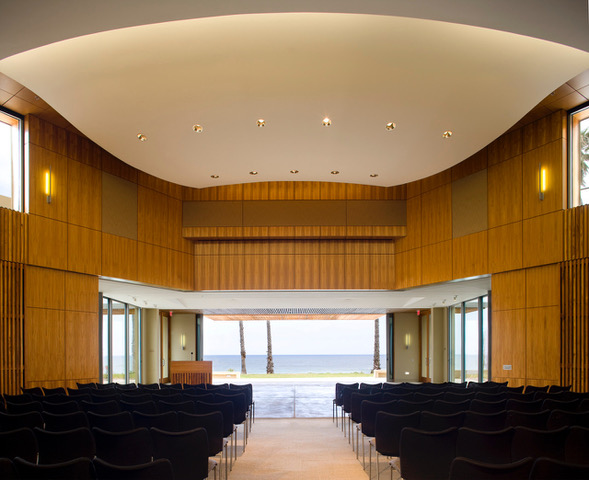
Institutional Seminar Series
(in person)
Tuesday, November 28th, 2023
at Scripps Seaside Forum Auditorium
12 p.m. Talks begin w/ Q&A
Pizza to be served after, will have vegan and gluten free options
-------------------------
Alba Solsona Berga
TITLE: Harmony in the Deep - Navigating Marine Mammal Adaptations with Sound, Software, and Scientific Innovation.
ABSTRACT: Autonomous passive acoustic instruments remotely sense and capture sounds from a variety of species and noise sources. This talk will provide an overview of how long-term acoustic records provide insights into the intricate responses of marine mammals to changing environments. Based on recent research findings, I will illustrate the nuanced variability of beaked whales shaped by both natural forces and anthropogenic threats in the Pacific and Atlantic. Shifting to the Gulf of Mexico, I will show the implementation of new data processing tools to characterize sperm whale population demographics and provide trends in animal density, addressing the potential impacts of the 2010 Deepwater Horizon Oil spill on this population.
BIO: Alba Solsona Berga specializes in unraveling the dynamic relationship between marine mammals and their ever-changing environment. Her research focuses on how species adapt to both natural and human-induced changes. She has designed tools to automate the analysis of large acoustic datasets, covering species sounds to noise sources, and actively advocates for open-source software in her field. Using remote sensing and environmental sampling technologies, she is dedicated to understand the physical, biological, and human-induced factors shaping marine mammals habitats. She earned her doctorate degree in 2019 from the Polytechnic University of Catalonia, Spain, and during part of her PhD joined SIO. Since then, she has held positions as a postdoctoral researcher and, more recently, as an Assistant Project Scientist.
TITLE: Non-intrusive Reduced Order Models for Geophysics Applications
ABSTRACT: Physics-based models defined by conservation laws are ubiquitous throughout geophysics. The majority of such models can be classified as parametric Partial Differential Equations (PDEs). Such PDEs are used in both forward and inverse modelling contexts. In the "forward" context, the objective is often to explore the parameter-to-observable map so as to: identify and classify dynamical regimes; scaling laws; and or to conduct a global sensitivity analysis. In the "inverse" context, the objective is typically parameter estimation, and if adjoint methods are adopted, a by- product is the capability to efficiently perform a local sensitivity analysis. Whether exploring the parameter-to-observable map, or solving an inverse problem, many evaluations of the forward model are required, a situation which can be computationally prohibitive for very large scale simulations.
In order to render "many-query" scenarios computationally tractable I employ data-driven, non-intrusive reduced order models (ROMs). Specifically I utilize the interpolated Proper Orthogonal Decomposition (iPOD) ROM. Such data-driven ROMs are agnostic with respect to the physics (e.g. the type of PDE) - as they are constructed almost exclusively using only the simulation data generated by the forward model. The ROMS are non-intrusive, implying they do not require the software stack used to evaluate the forward model solution be modified. The data-driven and non-intrusive nature of these ROMs are highly desirable from an end-users perspective and ultimately drive my interest in these methodologies.
In this talk I will present two distinct geophysical applications where iPOD has been successfully exploited. The first application concerns modelling the thermal structure within a subduction zone. Here the forward model is non-linear and consists of a coupled set of elliptic and parabolic PDEs which describe viscous flow in the mantle wedge and the conservation of temperature within the mantle wedge, subducting plate and over-riding plate. The parameter space for these models relate to the boundary conditions of both the flow and thermal problem, as well as the rheology of the mantle wedge. The second application considers modelling ground motion generated by elastic waves, for example as would occur during an earthquake. The forward model in this application consists of the linear elastic wave equation, with a sub-surface 3D velocity model and topography consistent with a region in Southern California. The parameterization in this study pertains only to the seismic source and is given by the depth of the source, and its focal mechanism.
Despite the highly distinct application contexts and the PDEs defining the forward model, I will demonstrate that the iPOD ROM is both accurate and highly efficient. Next I will present a global sensitivity analysis to elucidate the variability of the observable and to ascertain which parameters are primarily responsible for the variability. Lastly I will discuss recent progress made in the parameter space sampling strategies used to construct non-intrusive type iPOD ROMs.
BIO: Dave May is a theoretical geophysicist who employs applied mathematics, computer science and high performance computing to understand the dynamics of the Earth. In the broadest sense his research activities revolve around the development and utilization of new computational methodologies. Dave received his PhD in applied mathematics from Monash University in 2009. Before joining SIO in 2020 he was a postdoctoral fellow and then an oberassistant at ETH Zurich (2009-2016) and a senior research fellow in computational geosciences at the University of Oxford.
*Talks will not be recorded.




